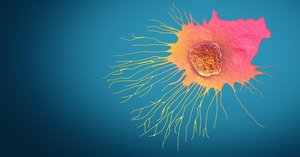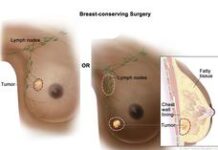Triple negative breast cancer may not be breast cancer after all, a study out of New York has found.Triple negative breast cancer (TNBC) is not fueled by any of the hormones that are typically responsible for breast cancer growth: estrogen, progesterone, and the HER2/neu gene. Between 10% and 20% of breast cancers are TNBC, and it disproportionally affects black women and Hispanic women. Patients with TNBC typically face fewer treatment options, since hormone therapies can’t be used against the cancer.But TNBC may be closer to non-breast cancers on a molecular level. Scientists have discovered that two mutated genes are present in the majority of TNBC patients — and how these genes interact with each other during DNA replication seems to spur the growth of cancerous cells.This could change not only how the TNBC is classified, but treatment options as well. Photo: Adobe Stock/Christoph Burgstedt
Photo: Adobe Stock/Christoph Burgstedt
Researchers from The Graduate Center of The City University of New York, Hunter College, Memorial Sloan Kettering Cancer Center, and the University of Chicago published their findings in Cancer Research, a journal from the American Association of Cancer Research.The researchers studied data from The Cancer Genome Atlas about black women who had triple negative breast cancer, analyzing multiple breast cancer cell lines and tissue samples. They found that over 80% of the patients they studied had a mutated p53 gene, which is a tumor-suppressor gene, as well as a mutated PARP gene, which is responsible for DNA repair and maintenance. Photo: Adobe Stock/vectorfusionart
Photo: Adobe Stock/vectorfusionart
Researchers then combined two existing drugs, talazoparib and temozolomide, to create a targeted therapy for these mutated genes that could potentially thwart tumor growth. They then tested the drug combination on TNBC samples in the lab — and they were successful.“Our new findings suggest that the presence of both [p53] and PARP could serve as a good identifier of breast cancers that would respond to combined treatment with talazoparib — a PARP inhibitor that was developed to treat breast cancers with the BRCA mutation — and temozolomide — a chemotherapy agent that is used to treat some brain cancers,” said Professor Jill Bargonetti, who was involved in the study. “This is an exciting finding because it could lead to the first targeted therapy for triple negative breast cancer, enabling more precise and effective treatment of a very aggressive form of the disease.” Photo: AdobeStock/JJAVA
Photo: AdobeStock/JJAVA
More research needs to be done, and the researchers’ next study will be testing the two drugs on tumor samples from animals with TNBC.If more studies prove successful using PARP inhibitor therapies on TNBC, it could lead to a reclassification of TNBC to a category of cancer called mutant p53/PARP1 positive cancers.Source







